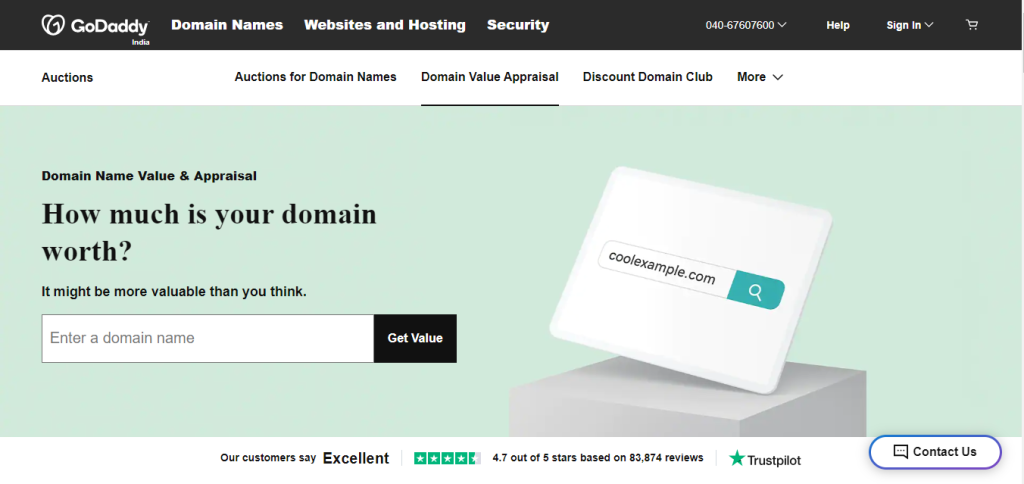Protecting Your Online Presence: Exploring Security Measures and SSL Certificates

Welcome to the online realm, where our lives have become intertwined with technology and connectivity. From shopping to banking, socializing to sharing personal information, we rely heavily on our online presence. But amidst this digital landscape lies a lurking danger – the threat of cyber attacks and data breaches.
In an era where our personal and financial information is at constant risk, ensuring the security of our online presence has never been more critical. One effective way to safeguard your website and protect sensitive data is through SSL certificates. In this blog post, we will explore what SSL certificates are, how they work, their benefits, and additional measures you can take to enhance your online security.
So buckle up as we dive into the world of cybersecurity and discover how you can keep your virtual kingdom safe from malicious intruders!
Understanding the Importance of Online Security
In today’s digital age, where everything from shopping to banking is done online, understanding the importance of online security has become paramount. The internet offers convenience and accessibility, but it also presents significant risks. Cybercriminals are constantly devising new methods to exploit vulnerabilities and gain unauthorized access to sensitive information.
Imagine waking up one day only to discover that your website has been hacked, customer data stolen, and your reputation tarnished. The repercussions can be devastating – loss of trust from customers, legal consequences, financial losses, and damage to your brand image.
Investing in robust online security measures not only protects you from potential threats but also instills confidence in your users. Encryption technologies like SSL certificates play a crucial role in safeguarding the integrity and confidentiality of data transmitted between servers and web browsers.
By prioritizing online security, you demonstrate a commitment towards protecting your customers’ personal information. This goes beyond compliance with regulations; it shows that you value their privacy and take their concerns seriously.
Stay tuned as we delve deeper into SSL certificates – an essential tool for fortifying your website’s defenses against cyber attacks!

What is an SSL Certificate?
In today’s digital landscape, where cyber threats are on the rise, protecting your online presence has become more crucial than ever. One of the key security measures you can implement is using an SSL (Secure Sockets Layer) certificate.
So what exactly is an SSL certificate? In simple terms, it acts as a digital passport that verifies the identity of a website and enables secure connections between a user’s browser and the website they are visiting. When you have an SSL certificate installed on your website, it encrypts sensitive information such as login credentials, credit card details, and personal data exchanged between users and your site.
How does SSL encryption work?
When a user visits a website with an SSL certificate, their browser initiates a secure connection with the server hosting the site. This process involves three main steps: authentication, encryption, and data integrity verification.
During authentication, the SSL certificate validates that the website being accessed is legitimate and belongs to its claimed owner. Encryption then comes into play by scrambling any data transmitted between the user’s browser and the server in order to protect it from potential eavesdroppers or hackers. Finally,
data integrity verification ensures that no unauthorized changes have been made to any transferred information during transmission.
Benefits of having an SSL Certificate
Having an active SSL certificate offers numerous benefits for both website owners and visitors alike. It provides enhanced security by encrypting sensitive data exchanged between users’ browsers
and websites. This helps prevent hackers from intercepting or tampering with this information.
Secondly,
SSL certificates instill trust in your visitors as they see visual cues like padlock icons or green address bars indicating that their connection to your site is secure.
This not only reassures them but also boosts their confidence in conducting transactions or sharing personal information on your platform.
Moreover,
having HTTPS instead of HTTP in front of your web address signals search engines like Google that you prioritize security. This can potentially improve your website’s search engine rankings, leading to increased visibility.
How Does SSL Encryption Work?
SSL encryption, also known as Secure Sockets Layer, is a technology that ensures the secure transmission of data between a web server and a user’s browser. It works by establishing an encrypted connection, which means that any information exchanged between the two parties cannot be intercepted or accessed by unauthorized individuals.
When you visit a website with an SSL certificate installed, your browser initiates a secure connection with the server using what is called “handshake” process. During this process, both parties exchange digital certificates to verify their identities. These certificates are issued by trusted third-party organizations known as Certificate Authorities (CAs). Once the identity verification is complete, the communication channel is established.
The SSL encryption itself relies on complex mathematical algorithms to scramble data sent between the server and browser. This ensures that even if someone manages to intercept the transmitted information, it would be virtually impossible for them to decipher it without access to the decryption key.
By implementing SSL encryption, websites can protect sensitive customer information such as login credentials, credit card details, and personal data from potential hackers or malicious actors who may attempt intercepting this valuable information during transmission.
In addition to encrypting data in transit, SSL certificates also provide additional security features such as validation of domain ownership and extended validation (EV) certificates that display reassuring visual indicators like green address bar along with organization name – indicating high level of trustworthiness for users.
Understanding how SSL encryption works helps us appreciate its vital role in safeguarding our online presence and ensuring our sensitive information remains private and protected while we browse securely across various websites on the internet today.

Benefits of Having an SSL Certificate
Having an SSL certificate for your website comes with a multitude of benefits that can greatly enhance your online presence and security. One major advantage is the increased trust it instills in your visitors. When users see that familiar padlock icon or “https://” in their browser’s address bar, they feel confident that their information is safe and secure.
In addition to building trust, having an SSL certificate also helps protect sensitive data from being intercepted by hackers. The encryption provided by SSL ensures that any information transmitted between the user’s browser and your website remains private and cannot be accessed by unauthorized individuals.
Another benefit of having an SSL certificate is improved search engine rankings. Search engines like Google prioritize websites with SSL certificates because they want to provide users with the most secure browsing experience possible. By investing in an SSL certificate, you are signaling to search engines that you value security and are committed to protecting your visitors’ data.
Furthermore, having an SSL certificate can help prevent phishing attacks on your website. Phishing occurs when malicious actors impersonate legitimate websites in order to trick users into revealing sensitive information such as passwords or credit card numbers. With an SSL certificate, it becomes much more difficult for attackers to create fake versions of your site because they would not have access to the necessary encryption credentials.
Obtaining an SSL certificate brings numerous benefits for both you as a website owner and your visitors alike. It builds trust, enhances security, improves search engine visibility, and helps safeguard against phishing attempts. In today’s digital landscape where cyber threats are prevalent, taking steps to protect yourself and maintain a strong online presence is crucial – getting an SSL certificate is undoubtedly one of those steps!
Types of SSL Certificates and Choosing the Right One
When it comes to protecting your online presence, having an SSL certificate is essential. But did you know that there are different types of SSL certificates to choose from? Understanding these options will help you make an informed decision about which one is right for your website.
The most common type of SSL certificate is the single domain certificate. As the name suggests, this certificate secures a single domain or subdomain. It’s perfect if you only have one website or if you want to secure a specific section of your site.
If you have multiple domains or subdomains that need protection, a wildcard SSL certificate might be more suitable for you. This type of certificate allows you to secure unlimited subdomains under a main domain. It’s cost-effective and eliminates the hassle of managing individual certificates for each subdomain.
For businesses that handle sensitive customer information online, an extended validation (EV) SSL certificate is highly recommended. This provides the highest level of trust and security by displaying a green address bar in web browsers, indicating that your website has undergone rigorous verification procedures.
There are also multi-domain SSL certificates available for websites with diverse needs. These certificates allow you to safeguard several different domains or subdomains with just one certificate, making it convenient and cost-effective for businesses with multiple websites.
Choosing the right type of SSL certificate depends on factors such as budget, number of domains/subdomains needing protection, and level of trust required by customers visiting your site. Assessing these factors will enable you to select the appropriate option that aligns with your specific requirements.
Remember, investing in an SSL Certificate not only protects your visitors’ data but also enhances their confidence in interacting with your website securely! So take proactive steps towards securing your online presence by choosing the right SSL Certificate today!

Additional Measures for Online Security
When it comes to protecting your online presence, having an SSL certificate is just one piece of the puzzle. There are additional measures you can take to enhance your online security and keep your website and data safe from potential threats.
One important step is to regularly update your software and plugins. Hackers often exploit vulnerabilities in outdated versions of software, so by staying up-to-date with the latest patches and updates, you can minimize the risk of being targeted.
Another crucial measure is implementing strong passwords. It may seem obvious, but many people still use weak passwords that are easy for hackers to guess or crack. Make sure your passwords are complex, containing a combination of letters (both uppercase and lowercase), numbers, and special characters.
Enabling two-factor authentication adds an extra layer of security to your accounts. By requiring users to provide not only their password but also a second form of verification (such as a code sent via SMS or generated by an app), you significantly reduce the chances of unauthorized access.
Regularly backing up your website’s data is essential in case something goes wrong – whether it’s due to a cyber attack or simply human error. By keeping backups stored securely off-site, you can quickly restore your website if necessary without losing valuable information.
Implementing a web application firewall (WAF) helps protect against common attacks such as SQL injections and cross-site scripting (XSS). A WAF monitors incoming traffic and filters out potentially malicious requests before they reach your website.
Educating yourself about common phishing techniques empowers you to recognize suspicious emails or websites that could be attempting to trick you into revealing sensitive information. Always be cautious when clicking on links or providing personal details online.
By combining these additional measures with an SSL certificate from GoDaddy – which encrypts data transmitted between users’ browsers and websites – you create multiple layers of protection for your online presence.
Our Recommendation: Godaddy: Taking Action to Protect Your Online Presence

When it comes to securing your online presence, there are various measures you can take. From implementing strong passwords and firewalls to regularly updating your software, every step counts in safeguarding your website from potential threats. However, one of the most crucial steps you can take is obtaining an SSL certificate.
An SSL certificate not only provides encryption for sensitive data but also adds credibility and trustworthiness to your website. With the growing concerns around cyberattacks and data breaches, having an SSL certificate has become a necessity rather than a luxury.
There are different types of SSL certificates available based on your specific needs. Whether you have a small blog or run a large e-commerce store, there is an SSL certificate that fits your requirements perfectly. It’s important to choose the right type of certificate based on factors such as coverage level, validation process, and cost.
In addition to obtaining an SSL certificate, there are other security measures you should consider implementing. These include using secure hosting providers like GoDaddy that offer additional security features such as malware scanning and DDoS protection.
GoDaddy is a reputable web hosting provider that takes online security seriously. They offer various SSL certificates at affordable prices with easy installation processes. Their customer support team is always available to assist you with any questions or issues regarding SSL certificates or other security-related matters.
Protecting your online presence requires proactive measures and continuous effort. By investing in an SSL certificate from GoDaddy and implementing additional security measures recommended by experts in the field, you’ll significantly reduce the risk of falling victim to cyber threats.
Don’t leave your valuable data exposed! Take action now to protect yourself and ensure the safety of both yourself and those who visit your website. Remember – when it comes to online security, prevention is always better than cure!
So why wait? Get started today by exploring GoDaddy’s range of SSL certificates and take the necessary steps to fortify your online presence. Stay safe,



